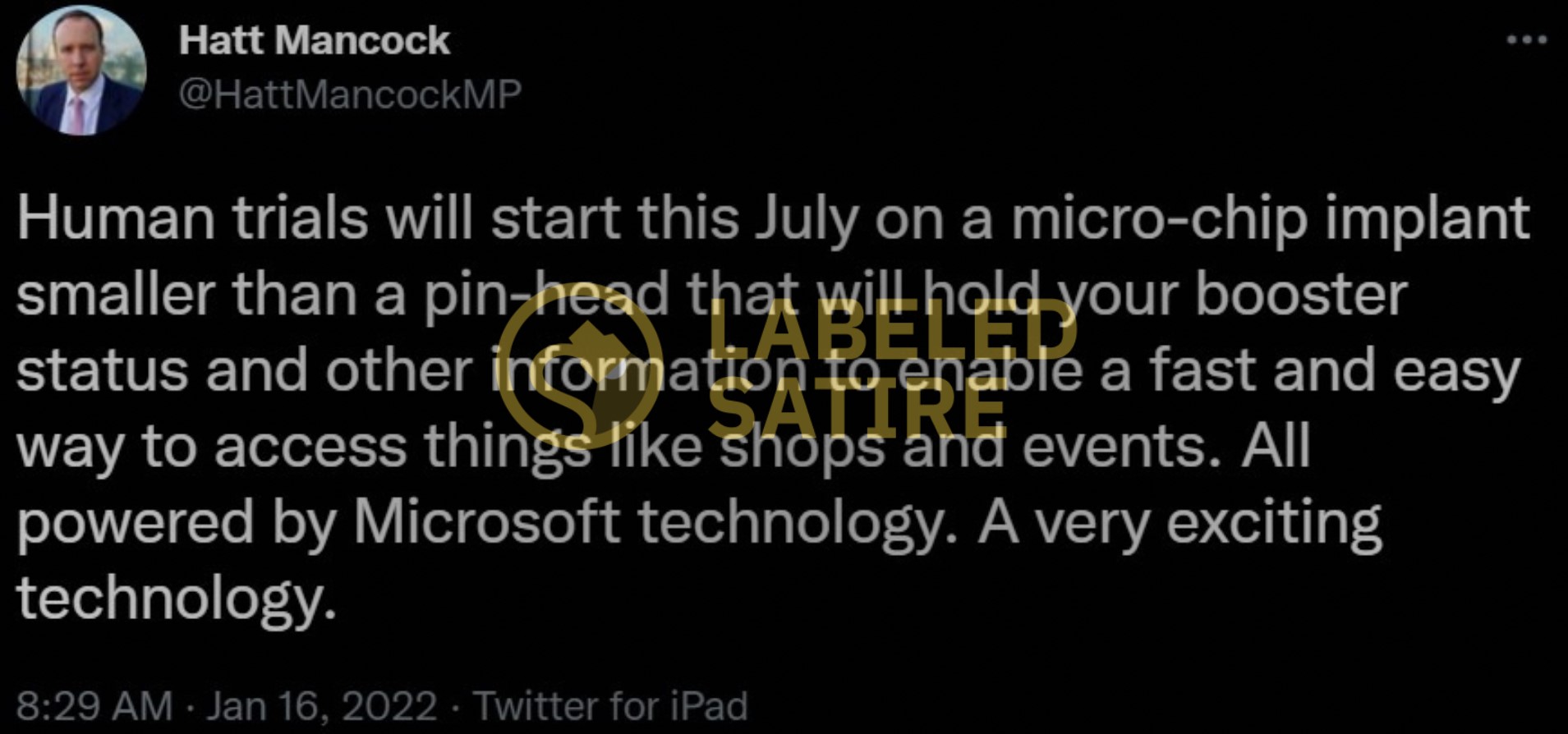In January 2022, a rumor started to circulate on social media that Microsoft was about to start human trials for a microchip that could store COVID-19 vaccination information.
This message reads: "Human trials will start this July on a micro-chip implant smaller than a pin-head that will hold your booster status and other information to enable a fast and easy way to access things like shops and events. All powered by Microsoft technology. A very exciting technology."
This is not a genuine news item. It originated with a parody account.
The satirical nature of this Twitter account can be discovered by reading its tongue-in-cheek biography about an MP "who definitely shouldn't be in jail for corruption in public office." The bio also contains the word "parody." Furthermore, while the account features a photograph of British MP Matt Hancock, the name displayed on the account is "Hatt Mancock," a humorous spoonerism.
While Microsoft — a company that has been repeatedly maligned throughout the COVID-19 pandemic by false and unfounded rumors — is not set to begin human trials on a COVID-19 vaccine microchip passport, the idea of a biometric passport isn't far-fetched. A Swedish company, for example, has truly developed a microchip that can be implanted beneath the skin. Thousands of Swedes have voluntarily opted to have this chip implanted in their arms in order to keep proof of their vaccination status (and other personal information) with them at all times.
Though still rare, several thousand Swedes have opted to have an electronic implant inserted under the skin in recent years, eliminating the need to remember key fobs, business cards, public transport cards, and recently: vaccine passes ...
"I have a chip implant in my arm and I have programmed the chip so that I have my COVID-19 passport on the chip and the reason is that I always want to have it accessible and when I read my chip, I just swipe my phone on the chip and then I unlock and it opens up," said Hannes Sjoblad, managing director of DSruptive Subdermals, as a PDF with his vaccine certificate appeared on his phone.
Today We Learned ...
In the course of researching this article, we learned that "spoonerism," the transposition of the initial sound of two or more words, was named after William Archibald Spooner, a priest and long-serving don at Oxford University who would, on occasion, accidentally utter unintentionally humorous phrases, such as "it is kisstomary to cuss the bride" (it is customary to kiss the bride), "You have hissed all my mystery lectures" (you have missed all my history lectures) and "you have tasted two worms" (you have wasted two terms). While spoonerisms are truly named after Spooner, not all of the phrases attributed to him have been verified.

